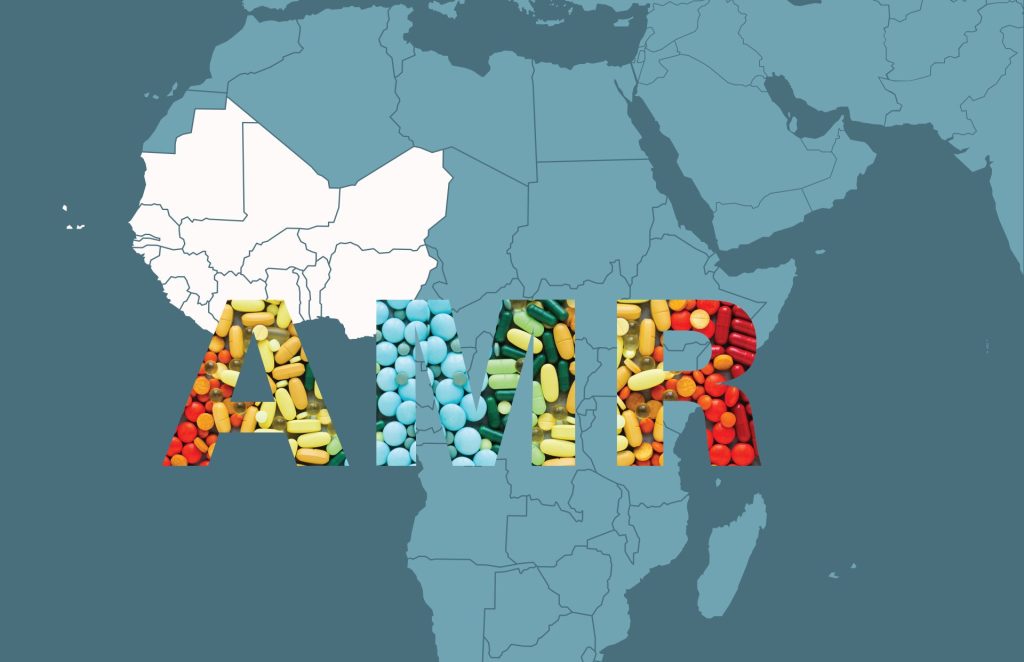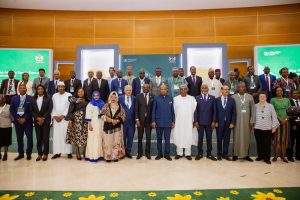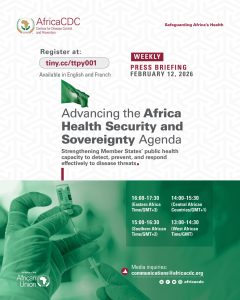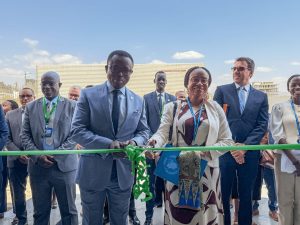West Africa has reviewed a community of practice to foster collaboration, knowledge sharing, and professional development onAntimicrobial Resistance (AMR) as ongoing efforts to coordinate a regional response gather momentum in the region.
The collaborative exchange of knowledge and information to enhance learning through peer-to-peer interaction, provide access to diverse perspectives, and facilitate the development of new skills was launched during a Regional Review Meeting on AMR Surveillance and Stewardship for the Western Africa.
The meeting also assessed the progress of the AMR surveillance system implementation and Antimicrobial stewardship programs to set the regional priorities and to guide Africa Centres for Disease Control and Prevention (Africa CDC) and partner priority areas of support and harmonize efforts
The meeting was convened by Africa CDC in collaboration with Nigeria Centre for Disease Control and Prevention from 14–18 July 2025 in Abuja, Nigeria.
“Tackling AMR demands a unified one health approach with context-specific solutions. It requires shared responsibility, regional solidarity, and accountability at all levels,” said Dr. Alinon Kokou, Regional Director of the Africa CDC Western Africa Regional Coordinating Centre (RCC). “The establishment of Community of Practice demonstrates our collective readiness to act across countries and across sectors to protect the health of our communities and future generations.”
AMR remains one of the top 10 global health threats. With its complexity and multisectoral nature, Africa CDC continues to advance a One Health approach, working across human, animal, and environmental health sectors to curb the rising threat. As the African Union’s premier public health agency, Africa CDC supports coordination, harmonization, and strategic alignment of AMR efforts across all 55 AU Member States.
The Regional Review Meeting, co-hosted by Nigeria Centre for Disease Control and Prevention (NCDC), brought together over 50 participants from 14 West African Member States, alongside technical and implementing partners including WHO, ECOWAS/WAHO, Biomerieux ECSA-HC, WOAH, ASLM, GARDP, MSH, and civil society groups such as Ducit Blue foundation, DRASA Health Trust, and youth-led AMR organizations.
“This gathering is critical in identifying what works, where the gaps remain, and how we can work together to build stronger, more resilient surveillance and stewardship systems,” said Dr. Tochi Okwor, Chair of Nigeria’s AMR Coordination Committee and NCDC representative. “It reflects Nigeria’s commitment to strengthening regional mechanisms and elevating AMR on the political agenda.”
Representing the Federal Ministry of Health, Dr. Michael Akpan, from the Department of Public Health, emphasized the urgency of shared learning. “Cross-country collaboration is not optional, it is essential. The challenges we face are too big for any country to solve alone. Platforms like this allow us to align our actions, share lessons, and speak with one voice.”
The event also reflected Africa CDC’s Pan-African leadership and regionalism, ensuring that no country is left behind. Representing the Eastern Africa RCC, Dr. Lucy Mazyanga expressed the importance of inter-regional synergy. “This isn’t just a West Africa agenda, it’s an African priority. We must harmonize efforts across regions, accelerate implementation of national action plans, and secure long-term political and financial support for AMR.”
Dr. Mamadou Diarrassouba, Executive Director of the ECOWAS Regional Centre for Surveillance and Disease Control (RCSDC), echoed the need for regional ownership:
“We cannot rely on external momentum alone. This is our region, our responsibility. ECOWAS stands ready to work with Member States and Africa CDC to mobilize resources and monitor progress across national borders.”
The meeting also laid the foundation for the Community of Practice on AMR in West Africa, which will serve as a platform for sustained engagement, joint learning, and inter-country collaboration. “In 2024, Africa CDC launched the African Union Landmark Report on AMR,” said Dr Yewande Alimi, One Health Lead at Africa CDC. “We are building on that momentum, turning insights into action, and action into lasting systems change.”
Participants reviewed progress on national AMR surveillance systems and AMS programs, shared innovative models of youth and civil society engagement, and developed a shared set of regional priorities for technical and financial support.
As Africa prepares for the Global Ministerial Meeting on AMR, to be held in Abuja in 2026, the regional review meeting serves as both a technical milestone and a call to action. The regional meeting will also enhance collaboration, peer learning, and sustainable implementation of AMR interventions across Member States.
“Stakeholders left the event energized and united around a common goal: strengthening AMR surveillance and stewardship systems to protect Africa’s health future,” said Dr. Tochi Okwor, Antimicrobial Resistance (AMR) and Infection Prevention and Control (IPC) Programme Coordinator at the Nigeria Centre for Disease Control.







